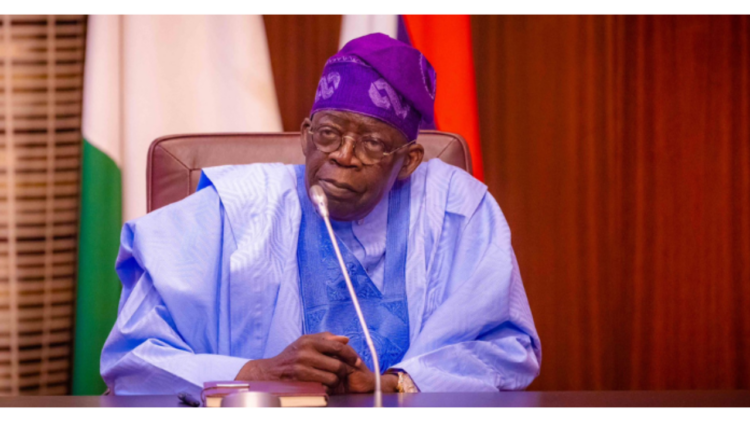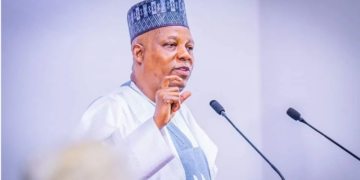President Bola Tinubu will, in the next few days, present the proposed 2024 budget (Appropriation Bill) to a joint session of the National Assembly, Speaker of the House of Representatives, Hon. Abbas Tajudeen, has said.
Abbas, who disclosed this at a one-day capacity-building retreat for chairmen and deputy chairmen of House Standing Committees in Abuja on Monday, also said the Green Chamber will convene a town hall meeting with stakeholders on the 2024 budget.
The Speaker asked chairmen and deputy chairmen of standing committees of the House to consider and finalise the budget within two weeks without compromising the integrity of the process by engaging in haphazard and superficial considerations.
He said: “As we expect to receive the 2024 Appropriation Bill in a few days, I wish to state that the House will convene a Budget Town Hall Meeting to enable citizens to make inputs into the 2024 Appropriation.
“It is the first time such an engagement is planned at the national level. I invite our partners to work with us in preparing for a vigorous and all-inclusive budget process.
“To ensure speedy passage of the 2024 budget, I charge all committees to double their efforts and finalise all considerations in two weeks.
“However, this does not imply haphazard and superficial consideration of the budget. Rather, it is a challenge to you to deploy all resources and make the needed sacrifices to ensure we pass the budget in good time for the good of all Nigerians.”
Abbas reminded the committee chairmen and their deputies that the legislature is central to the nation’s democracy, emphasising that a strong House was integral to ensuring that governance is conducted in an open, accountable, and representative manner.
“As chairmen and deputy chairmen of various committees, we must ensure that the House delivers on its Legislative Agenda. All Committees should study the relevant sections of the Agenda and incorporate them into their work plans. You are encouraged to rely on the Agenda and generate Bills, Motions and other legislative interventions.
“The success of the Agenda hinges on the efficiency, effectiveness, and integrity of our committees. In order to encourage compliance, we established the Committee on Monitoring and Evaluation of Standing and Ad-hoc Committees for the first time in the history of the Nigerian legislature. Its mandate is to ensure that all Committees live up to their mandates and operate effectively.
“The Committee will submit regular reports to the House and Leadership on the activities of all committees. I wish to encourage Committees to operate as ‘teams, consisting of chairmen, deputies, and all their members, not just a few individuals.
“To be effective, Committees must hold regular meetings, develop and adhere to annual work plans, report regularly, and engage with the public. However, the general effectiveness of Committees is contingent on a clear understanding of your mandate and objectives,” he said.
While lamenting the challenges that impede overall effectiveness of the committees and the legislature as a whole such as the high turnover rate, Abbas said: “the 10th House of Representatives has recorded the highest attrition rate since the return to democracy in 1999. As a result, critical knowledge and expertise have been lost in the process.
“Other factors that limit the effectiveness of our Committees include insufficient resources, particularly inadequate funding, staffing, and resources, all of which limit their ability to conduct thorough analysis and research. Despite the widely held belief, the House and its Committees are grossly underfunded, making it nearly impossible for them to function optimally.”
He also noted that the theme of the retreat: ‘Improving Legislative Performance through Effective Committee Management’ was deliberately chosen to provide a comprehensive understanding of the tasks ahead, especially for many of those who were taking up the legislative responsibilities for the first time.
He stated: “The legislature is central to our democracy, and a strong House is integral to ensuring that governance is conducted in an open, accountable, and representative manner.
“As chairmen and deputy chairmen of various committees, we must ensure that the House delivers on its Legislative Agenda. All committees should study the relevant sections of the Agenda and incorporate them into their work plans. You are encouraged to rely on the Agenda and generate bills, motions and other legislative interventions.”
In his remarks, the Deputy Speaker, Hon. Benjamin Kalu, said committees of the House were the engineroom of legislative oversight, playing a pivotal role in scrutinising government policies, investigating public misconduct, and ensuring that the executive branch remains accountable to the people.
He said, “As Chairmen and Deputy Chairmen of these committees, you bear immense responsibility. Your leadership, your expertise, and your dedication are essential in steering the legislative agenda, shaping public policy, and upholding the principles of good governance.”
In his goodwill message, the Chief of Staff to the President, Hon. Femi Gbajabiamila, also said the Federal Government’s budget would be presented to the National Assembly “in a matter of days.”
The former Speaker of the House urged heads and members of standing committees to synergise while scrutinising the budgetary proposals during defence sessions.
Gbajabiamila also noted that committees were key to the legislative process, urging the chairmen and their deputies to work harmoniously.
He said: “The legislature is the engine room of a democratic
government, and you, the chairmen and deputies, are the gears that
keep that engine running. It is a high honour and a profound
responsibility.
“More than at any other time in the nation’s history, all of us who hold office in government must put our best foot forward every day so that by our joint endeavour, we can advance the cause of our nation.”











